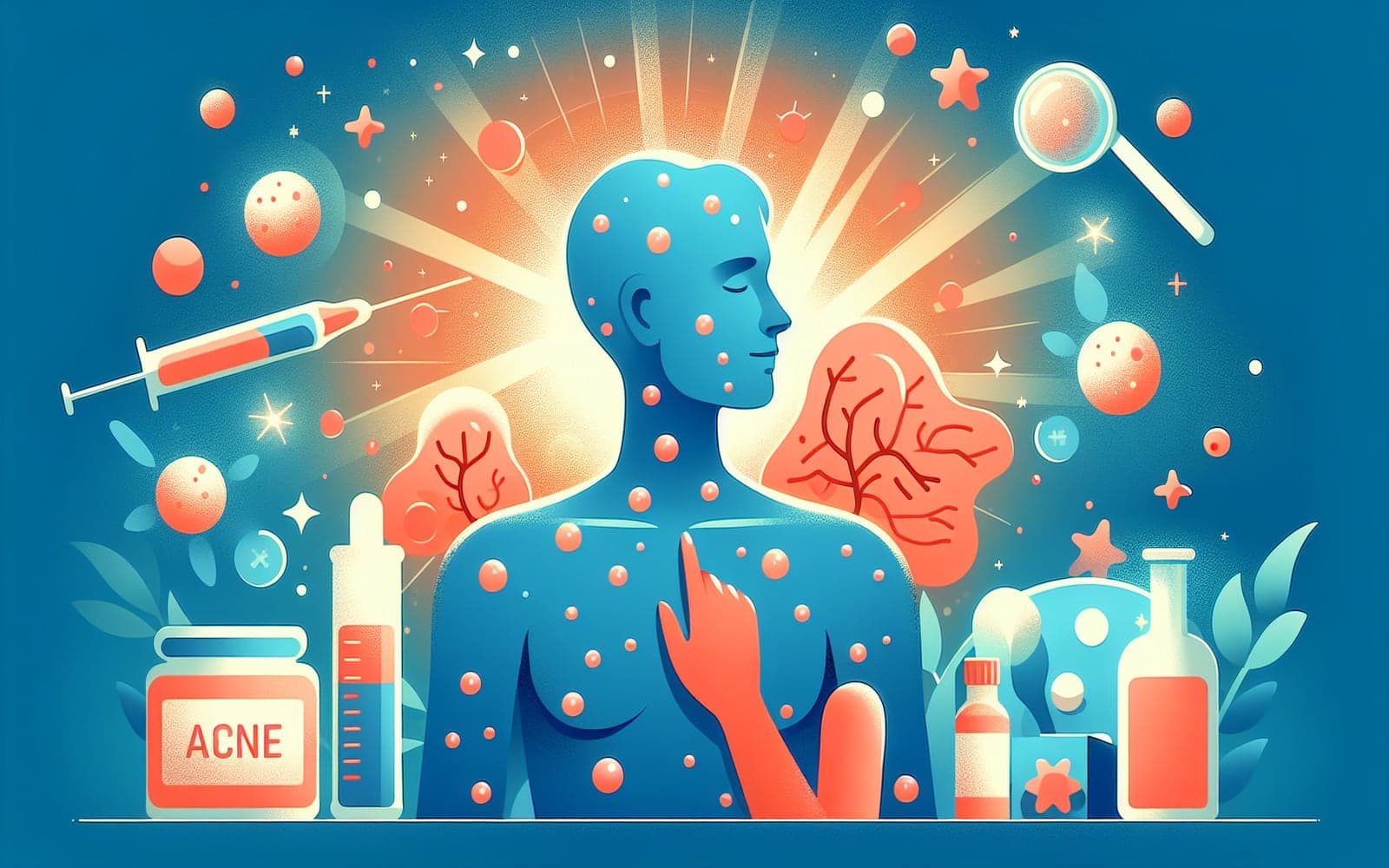What Causes Acne? Uncovering the Mystery Behind Your Breakouts
What Causes Acne? Uncovering the Mystery Behind Your Breakouts
What's This About?
Everyone gets a pimple now and then, but what actually causes acne? This article dives into the science behind those pesky breakouts to help you understand what's happening beneath the skin.
Contents
- The Culprits Behind Acne
- Types of Acne Lesions
- Factors That Worsen Acne
The Culprits Behind Acne
Acne vulgaris occurs when hair follicles on your skin get clogged with oil and dead skin cells. It's mainly driven by hormones called androgens, which increase oil production. Some people have a genetic predisposition to acne, making them more likely to suffer from breakouts. The bacteria Cutibacterium acnes also plays a role by inflaming the skin.
Types of Acne Lesions
Acne comes in various forms, from blackheads and whiteheads to painful nodules. Blackheads are open pores clogged with oil and dead skin, while whiteheads are closed pores. Papules and pustules are small red bumps that may be tender. Nodules are large and painful and can lead to scarring if not treated.

Factors That Worsen Acne
Several factors can exacerbate acne, including stress and certain diets high in sugar and dairy. Some studies suggest that foods with a high glycemic index may worsen acne. Skin trauma, such as picking at blemishes, can also lead to more severe inflammation and scarring.
FAQs
How do hormones affect acne?
Androgens increase oil production, leading to clogged pores.
Can diet cause acne?
Certain diets high in sugar and dairy may worsen acne.
What types of acne exist?
Acne includes blackheads, whiteheads, papules, pustules, and nodules.
Is acne genetic?
Yes, a genetic predisposition can increase one's likelihood of acne.
Key Takeaways
Understanding what causes acne can help you find better ways to manage it.
Additional References
- Stathakis V, Kilkenny M, Marks R. Descriptive epidemiology of acne vulgaris in the community. Australas J Dermatol 1997; 38:115.
- Wolkenstein P, Machovcová A, Szepietowski JC, et al. Acne prevalence and associations with lifestyle: a cross-sectional online survey of adolescents/young adults in 7 European countries. J Eur Acad Dermatol Venereol 2018; 32:298.
This article has been reviewed for accuracy by one of the licensed medical doctors working for Doctronic.











